第195章 CHAPTER XLVII. EVIL TIDINGS.(2)
But the Titan did not feel crushed by it; the thunderbolt only served to fan the fire in his breast.
He rose from his seat, and his eyes flashed with anger.
"I cannot be everywhere," he said, aloud, "but my enemies shall soon find out that I am here, and I shall know how to avenge the disgrace of Trafalgar by a brilliant victory." [Footnote: Napoleon's own words.]
The door behind him opened at this moment, and the chief of the imperial cabinet, M. de Bourrienne, entered.
"Sire," he said, "the two Austrian envoys, Count de Giulay and Count Stadion, have returned, and beg your majesty to grant them an audience."
"So late at night!" exclaimed the emperor. "Why did they not come in the daytime?"
"They pretend to have been detained by the impassable state of the roads, but assert to be able to lay before your majesty some highly important intelligence, which would seem entirely calculated to bring about the conclusion of peace so longed for by Austria."
"Let the gentlemen come in," said the emperor, after a short reflection, and he placed his foot again on the crumpled paper, as if he wished to choke the secret of its contents, so that it might not betray itself to the Austrians. Bourrienne had gone out, and the two Austrian envoys, Count Giulay and Count Stadion, now appeared on the threshold.
"You return to me," said the emperor, hastily, to them; "my conditions have been accepted, then? I told you I should not negotiate separately with Austria, but that I should require Russia to participate in the negotiations, and to be included in the treaty of peace on which we might agree. You come, then, in the name of the Emperors of Austria and Russia?"
"No, sire," said Count Stadion, respectfully, "we come only in the name of Austria."
"The emperor, our august master," began Count Giulay--but Napoleon interrupted him quickly.
"I shall listen to you only if you are authorized to speak in the name of the two emperors," said Napoleon. "I already told you so yesterday, and I do not see what should induce me to-day to change my mind. The state of affairs is precisely the same."
"Pardon me, sire, it is not," said Count Giulay, firmly.
The emperor fixed a piercing glance on him, as if he wished to read in the innermost recesses of his heart.
"And why is it not the same?" he asked, while his eye slowly turned toward the foot, under which he concealed the sinister dispatch.
"Your majesty was yesterday pleased to say that Austria, although she might boast of the active support of Russia, could never count on the assistance of Prussia, and that Prussia's neutrality was as useful to France as Russia's active support to Austria."
"Why do you repeat the words I uttered yesterday?" asked the emperor, impetuously.
"Sire, because Prussia is no longer neutral," said Count Stadion, solemnly.
"Because Prussia is ready to become, like Russia and England, the active ally of Austria," added Count Giulay.
Napoleon's flashing, gloomy eyes looked alternately at the two Austrian envoys.
"How did you obtain that information?" he asked at last.
"Sire, from his majesty the Emperor of Russia. He has concluded a treaty with the king at Potsdam, by which Frederick William III. declares his readiness to participate in the campaign and to assist Austria, unless your majesty should condescend to accept the conditions which the King of Prussia is to propose as mediator between the coalition and France."
"Ah, the King of Prussia is going to propose conditions to me?" exclaimed Napoleon, shrugging his shoulders. "Do you know those conditions?"
"The King of Prussia will propose to your majesty to surrender the crown of Italy, not to disturb the princes of Italy in their possessions and independence, to recognize the independence of the German empire, of Holland, of Switzerland, to--"
"Enough!" said Napoleon, impatiently. "The Emperor Alexander has taken the liberty to tell you a story, and your credulity must have greatly delighted him. Can you seriously believe that the King of Prussia would in his infatuation go so far as to hope that I should accept propositions of so ridiculous a description? Truly, even if I were a vanquished and humiliated emperor, I should stab myself with my own sword rather than submit to such a disgrace. It seems I have not yet engraved my name deeply enough into the marble tablets of history, and I shall prove to these overbearing princes, who believe their legitimacy to be the Gorgon's head they only need show in order to crush me--I shall prove to them WHO I AM, AND TO WHOM the future belongs, whether to THEM or to ME! However, it is unnecessary to say so much about things which do not exist."
"Sire, the treaty of Potsdam DOES exist," said Count Stadion. "The envoy whom the King of Prussia has sent off to lay its stiputions before your majesty would have reached your headquarters already if he had travelled as rapidly as the Emperor Alexander, who left Potsdam simultaneously with him."
"Well, let him come; I shall see, then, whether you have told me a story or not," replied Napoleon. "If the King of Prussia has dared to do this, by God, I will pay him for it! [Footnote: Napoleon's own words.--Vide Hormayer. vol. i., and Hausser's "History of Germany," vol. ii., p. 680.] But this does not change my resolutions and plans in any respect. I shall enter into negotiations with Austria only on condition that Russia participates in them. State it to those who have sent you, and now farewell."